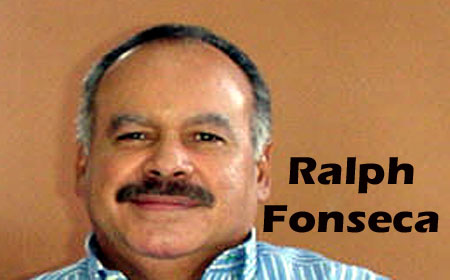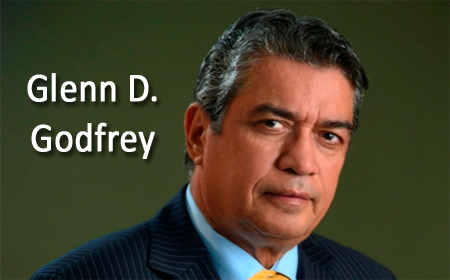BELIZE CITY, Thurs. Mar. 2, 2017–The Government of Belize has lost yet another court case in the US—this time it has been denied a motion it filed in January in US Court of Appeal in the Eleventh Circuit, with jurisdiction in Georgia, Florida and Alabama, USA, to dismiss a US$22 million suit by Glenn D. Godfrey, a Belizean attorney and former People’s United Party (PUP) Cabinet Minister.
The Government of Belize had contended that Ralph Fonseca, as then Budget Minister, did not have the constitutional authority to cut the deal he did with Godfrey, and it held the position that as a consequence the Master Lease Agreement (MLA) which the Government had with Intelco—signed, sealed and delivered in the USA back in 2002—is void.
However, the US court found in a decision handed down on Tuesday that, “The long and short of it is, that the Government ratified Fonseca’s actions through its repeated payments of large sums of money over many years and by its retention of the telecommunications equipment. It thereby ratified the waiver of sovereign immunity contained in the same agreement.”
After proceedings led by circuit judges Marcus, Anderson and Ginsburg, the court held that, “The undisputed and unambiguous facts found in the record indicate that the Government made forty payments of $337,409.46 each in accordance with the lease schedules for the entirety of the two concurrent five-year leases, which collectively spanned five years and eight months (from December 18, 2002, to August 27, 2008) and amounted to the sum of approximately $13.5 million. The payments continued even after a change of administration in the Government of Belize in February 2008. The Government’s conduct in making the payments as required by the MLA, the promissory notes, and the lease schedules can be understood only on the assumption that the Government repeatedly consented to be bound by the MLA — indeed, it is difficult to conceive of any other reason why the Government would have willingly made regular payments totaling nearly $13.5 million.”
It added that the Government did not deny that it had made these payments.

The case originated back in 2012, following a dispute over an agreement to lease equipment from Glenn D. Godfrey’s now defunct Intelco — International Telecommunications Limited. Although the Government won round one of litigation in 2013, when the lower court found that public interest matters favored dismissal of the case, Godfrey appealed and won in 2014 through a company he had formed in Florida, USA, under the name – GDG Acquisitions LLC.
As we had previously explained, the US Court of Appeal in the 11th Circuit vacated the lower court’s ruling and remanded it back to the court for review on the question of jurisdiction, because the appeals court said that the lower court had erred in disagreeing that the proper forum for the litigation is the US.
The contentious Master Lease Agreement—which was negotiated by former Budget Minister of the then PUP administration, Ralph Fonseca, with Godfrey in Florida and Washington, DC—had an explicit clause purporting to irrevocably agree that the parties would settle litigation over the contract overseas on US soil and waiving Belize’s sovereign immunity.
We note that at the change of political administration in 2008, a dispute arose over contract payments under the agreement with the Government to rent the equipment from the already defunct company.
The Government reportedly paid more than $13 million in rental fees for using the telecommunications network which was operated using equipment which Intelco bought in the USA after it borrowed $5 million from the International Bank of Miami. The rental payments were critical in that they were earmarked to repay the bank loan.
In the US lawsuit, GDG claimed that the Government owed $14 million under the lease agreement, and the balance, it said, continued to grow each month.
For its part, the United Democratic Party (UDP) administration of Prime Minister Dean Barrow had contended that the Intelco equipment was defective, and so it cut off payments under the lease agreement, which had been extended with a further arrangement under the former administration.
The lower court ruling in the US pointed out that witnesses and documents were more readily accessible in Belize and enforcing a judgment would be easier for a Belizean court, so Godfrey clearly had an option to pursue the case here in Belize; however, Godfrey appealed in the US and won a year later. The appeals court said that the lower court abused its discretion.

